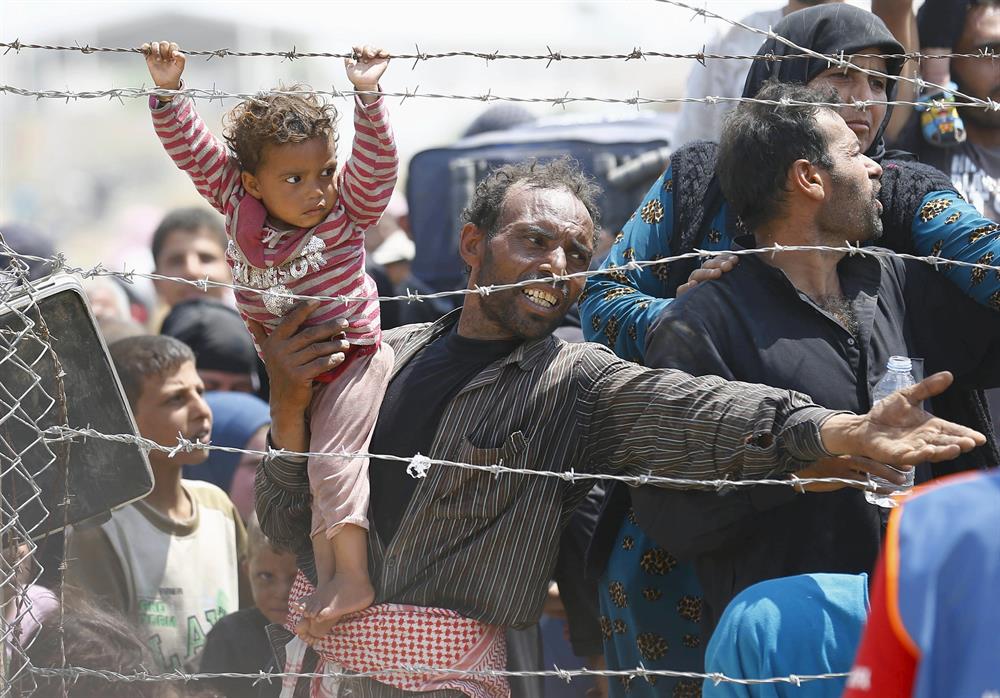Increasing numbers of Syrian refugees in the Middle East are falling into deeper debt and facing grinding poverty, partly as a result of exhausting their savings with shortages of essential aid worsening their plight, U.N. agencies and local governments said on Tuesday.
Some 70 percent of refugees in Lebanon are living below the poverty line, compared with 50 percent in 2014, according to the Regional Refugee and Resilience Plan mid-year review, carried out by U.N. agencies, local governments and aid groups.
In Jordan, 90 percent of registered Syrian refugees in urban areas have fallen below the national poverty line, while more than 67 percent of families are living in debt.
Families have been forced to reduce the number of day to day meals, spend less on healthcare, borrow money, and pull children out of school and send them to work, the report said.
“One of the more striking things of concern to us is the specter of poverty hanging over the Syrian refugee populations and host communities in the five countries that take the most refugees – Turkey, Lebanon, Iraq, Egypt and Jordan,” Leo Dobbs, spokesman for the U.N. refugee agency (UNHCR), told the Thomson Reuters Foundation.
“A growing number of people after years of being in exile, exhausting their resources, are entering poverty,” he added.
The amount of funding received by aid agencies and local governments has increased this year to $1.38 billion, compared with $1.06 billion last year.
But the number of refugees has risen too. There are more than 4.8 million Syrian refugees, up from 4 million last June.
The majority are living with host communities in neighboring Jordan, Lebanon and Turkey. In Lebanon, Syrian refugees make up about a fifth of the population. Turkey hosts the largest number – nearly 3 million.
“Their infrastructure is creaking, they are finding it more and more difficult to provide basic services and shelter and medical aid,” Dobbs said, speaking about the region’s local governments and municipalities.
At a conference in London in February, U.N. and aid agencies appealed for $4.54 billion for the region’s Syrian refugee crisis. By the end of May, donors had disbursed some 30 percent of this.
More than 250,000 people have been killed and more than 11 million displaced in Syria’s five-year-old civil war.
U.N.-brokered peace talks have stalled. The United Nations’ envoy to Syria told the U.N. Security Council last week it remained unclear when the next round peace talks would take place.
With no end to the war in sight, governments and aid agencies are looking at how to help refugees earn a living.
Lebanon, Jordan and Turkey agreed to act to open up their labor markets to refugees, while in Jordan there are plans to give up to 150,000 Syrian refugees work permits to do manufacturing jobs in special economic zones.
Turkish President Tayyip Erdogan on Tuesday outlined plans to grant citizenship to some of the Syrians who have sought refuge there, particularly those with qualifications of use to Turkey.
